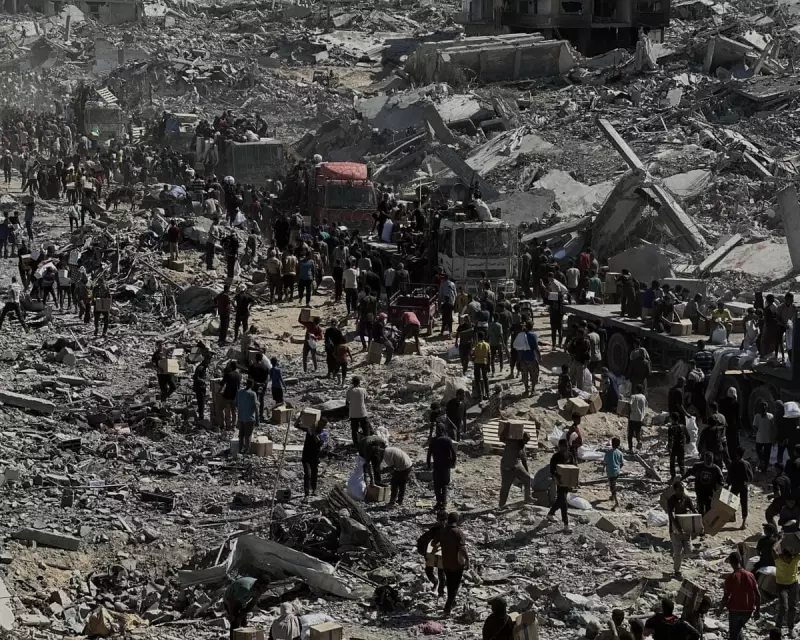
A fragile ceasefire between Israel and Palestinian factions has failed to unlock the humanitarian catastrophe unfolding in Gaza City, where desperate civilians face mounting challenges in accessing life-saving assistance despite the nominal truce.
Infrastructure Collapse Hinders Relief Efforts
The extensive damage to Gaza's road network and critical infrastructure represents one of the most significant barriers to effective aid distribution. UN officials report that many routes remain impassable due to rubble and destruction from recent hostilities, creating logistical nightmares for relief convoys attempting to reach the most affected areas.
"Even with the fighting paused, we're facing an uphill battle against time and terrain," explained a senior UNRWA coordinator who requested anonymity. "The physical destruction is so comprehensive that simply moving supplies from point A to point B becomes a major operation."
Security Concerns Persist Amid Fragile Truce
While the ceasefire has halted active combat, security remains a pressing concern for aid organisations. Reports of looting and growing desperation among the population have complicated distribution efforts, with some convoys requiring additional protection to ensure supplies reach their intended recipients.
Local authorities struggle to maintain order as the humanitarian situation deteriorates, with basic services including electricity, water, and medical care remaining severely compromised across the territory.
Mounting Humanitarian Needs Overwhelm Response Capacity
The pause in fighting has revealed the staggering scale of humanitarian need that accumulated during weeks of conflict. International aid agencies report that food, medical supplies, and shelter materials are arriving in insufficient quantities to meet the overwhelming demand.
- Thousands of displaced families remain in temporary shelters
- Medical facilities operate with limited power and supplies
- Clean water access remains critically limited
- Children and elderly face heightened health risks
"The ceasefire was supposed to be our window to scale up assistance, but we're finding that window is smaller than we hoped," noted a representative from the International Committee of the Red Cross.
International Community Calls for Sustained Access
World leaders and humanitarian organisations are urging all parties to facilitate unimpeded aid delivery and extend the ceasefire to allow for comprehensive relief operations. The coming days will be critical in determining whether the truce can translate into meaningful improvement for Gaza's civilian population.
With negotiations for a more permanent agreement ongoing, the international community watches anxiously as aid workers race against time to address one of the most severe humanitarian crises in recent memory.





